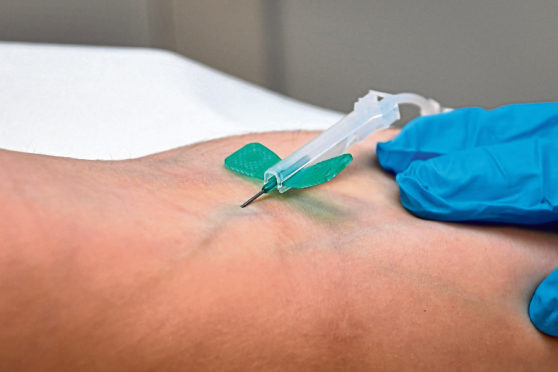
A simple blood test could detect breast cancer up to five years before any clinical signs of the disease, according to research.
A Glasgow conference heard how researchers are developing the test which they say identifies the body’s immune response to substances produced by tumour cells.
Cancer cells produce proteins called antigens that trigger the body to make antibodies against them – autoantibodies.
Researchers at the University of Nottingham have found these tumour-associated antigens (TAAs) are good indicators of cancer – and can be detected up to five years before clinical signs of the tumour.
Daniyah Alfattani, a PhD student in the research group, said: “We need to develop and further validate this test. However, these results are encouraging and indicate that it’s possible to detect a signal for early breast cancer.
“Once we have improved the accuracy of the test, then it opens the possibility of using a simple blood test to improve early detection of the disease.”
The scientists estimate that, with a fully funded development programme, the test might become available in the clinic in about four to five years.
A similar test for lung cancer is being tested in a randomised controlled trial in Scotland, involving 12,000 people at high risk of developing lung cancer because they smoke.
However experts say the research is in the early stages.
Cancer expert Professor Paul Pharoah said: “These are clearly very preliminary data and a lot more research would be needed.”
Professor Lawrence Young, of the University of Warwick, said: “While this is encouraging research, it is too soon to claim this test could be used to screen for early breast cancer.”

Enjoy the convenience of having The Sunday Post delivered as a digital ePaper straight to your smartphone, tablet or computer.
Subscribe for only £5.49 a month and enjoy all the benefits of the printed paper as a digital replica.
Subscribe